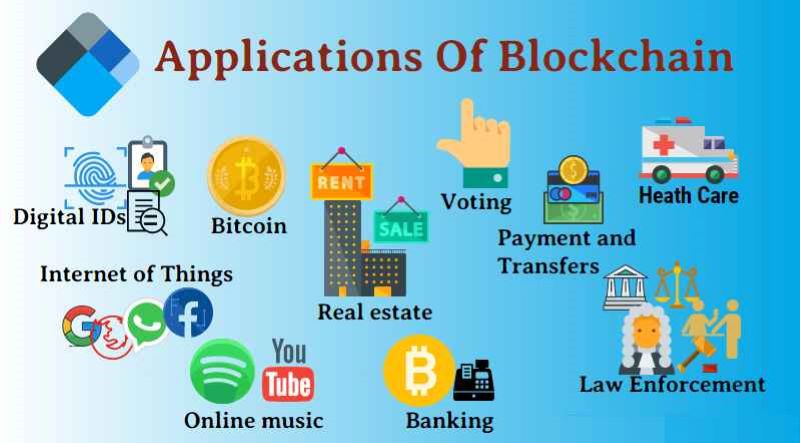Unraveling the Mystery: Cryptocurrency vs. Blockchain Demystified
Ever felt tangled in tech talk? Today, we slice through the confusion with a simple explanation of the difference between cryptocurrency and blockchain. They’re not twins, folks! Cryptocurrency is digital money you can send or get without a bank. It’s like cash for the internet. And its heart? Blockchain. This genius tech records all the deals across a chain of computers. Think of it as a digital ledger that’s tough to cheat. With me, get ready to nail this topic down and impress your friends at your next hangout. No sweat, no tears, just clear answers are coming your way!
Debunking the Concept: Cryptocurrency and Its Mechanics
Defining Cryptocurrency and How It Functions
What exactly is a cryptocurrency? At its heart, cryptocurrency is a type of money you can’t touch or see; it lives online. Unlike dollars or euros, no single bank or government controls it. Cryptocurrency uses special tech called blockchain. This tech makes sure all deals are safe without needing a bank.
How does cryptocurrency work? Think of it as an online game where you swap virtual coins. But instead of just being used in a game, lots of people around the world use it to buy and trade things. The cool part? It’s super safe because of complex puzzles that each trade has to pass.
Cryptocurrency doesn’t sleep; it’s always up for a trade. With just a few clicks on your phone or computer, you can send or get cryptocurrencies. And it doesn’t matter whether you’re in New York or New Zealand!
The Role of Crypto Tokens in Digital Transactions
Now, what about these crypto tokens? Tokens are like the arcade tokens we use – but for the digital space. They represent something valuable. In games, a token might give you a life or a power-up. In the crypto world, these tokens can be part of new projects or companies.
People use these tokens to take part in digital transactions. You can use them to pay for things, invest, or even as a way to vote on decisions in a project. Also, different projects create their own tokens, which can go up or down in value, kind of like stocks.

To make it simple: crypto tokens are the online currency of the digital world. They let you buy, sell, and join in the modern digital market. Whether you want a new virtual pet, a piece of digital art, or to support a fresh tech project, tokens are the key.
And there you have it. Cryptocurrency is digital cash that works through blockchain. Tokens are the currency we use in the world of cryptocurrency. Now, let’s keep unraveling the rest of this mystery in the next sections.
The Backbone Technology: Understanding Blockchain
How Blockchain Works – The Basics of Distributed Ledgers
Imagine blockchain as a digital notebook. All who have the notebook can see the notes in it. It’s a place for keeping records that everyone can trust. This notebook doesn’t live in one place. Instead, it’s in many places at once, on computers all over the world. All the notes must match up. If not, the odd one out is not trusted.
Let me boil it down. How blockchain works is simple yet clever. A blockchain collects information into groups called blocks. When a block fills up, it’s linked to the previous block. This forms a chain of data, hence the name. It’s important because once data is in a block, it’s very hard to change.
Various Blockchain Applications and Their Impact
Blockchains do more than just hold on to notes. They change how we do things in big ways. They can be public for anyone to see, or private for just a group. Looks can be deceiving, though. While blockchains started with crypto, their use has grown a lot.
Think of voting. A blockchain can make votes super secure and clear. It can help farmers track food from farms to tables. Even musicians use it to make sure they get paid for their music.
In the business world, blockchains are big news. They can save time and money by making processes faster. They let businesses work together without worry. The trusty notebook makes sure everyone plays fair.
Blockchain is also a star in the world of games and art. In games, it makes sure the virtual sword you bought stays yours. It also helps artists sell digital art safely, using a trick called NFT, or non-fungible token. It’s like a certificate that says, “This digital artwork is the only one like it.”
But the fun doesn’t stop there. Blockchains can power whole computers that we all share. They form the backbone of whole new worlds online called the metaverse. Here, you can play games, work, or just hang out, all on a blockchain.
Blockchains are now in our everyday lives and they’re here to stay. They keep things fair, save us time, and open up new ways to enjoy the world. It’s a big leap from just a notebook with notes. It’s all about sharing, trusting, and working together in new and exciting ways.
Distinguishing the Pair: How Cryptocurrency and Blockchain Differ
The Relationship Between Blockchain and Cryptocurrencies
Let’s delve into the tight bond between blockchain and crypto. So, what’s the difference between cryptocurrency versus blockchain? Simply put, blockchain is like a diary that anyone can read but can’t easily tamper with. Cryptocurrency is money that you can use to buy or trade stuff without physical coins or bills.
Imagine you and your friends have a notebook. In this notebook, you keep track of who paid for the pizza or snacks. That’s sort of how blockchain works. It’s a fancy notebook where all transactions get locked in with a mathematical lock.
Cryptocurrencies like Bitcoin live on blockchains. They rely on this tech to exist and move around from one person to another. It’s like the magic carpet that carries digital money across the internet.
Now, what’s the role of crypto tokens in this relationship? Crypto tokens are like the arcade tokens you exchange your dollars for. They hold value in the digital world, and you can trade them. But they need a safe place to exist, and that’s where blockchain comes in.
Blockchain is the stage, and cryptocurrencies are the stars of the show. But without the stage, the stars wouldn’t have a place to shine. And understanding blockchain technology lets you see behind the curtain. You can know how the magic happens.
Specific Use Cases of Blockchain Beyond Currency
But hey, blockchain isn’t just about money. It can do a lot more than just handle digital currency basics. Let’s talk about how blockchain works for other cool stuff.
For instance, there’s something called smart contracts. They’re like promises written in stone—or, in this case, code. If you meet the contract’s rules (like delivering a product), the contract automatically does its thing (like pay you money).
Then, there are games or apps that use blockchain to keep track of who owns what digital goodies. This could be anything from virtual pets to artworks. It’s all about the digital ‘proof of ownership’ that blockchain is so good at keeping safe.
And then there’s keeping track of real stuff, like where your food came from. Yep, blockchain can track a tomato from the farm to your salad to make sure it’s fresh and safe to eat.
Blockchain can protect art. It can vote in elections. It even helps folks who don’t have banks.
So, remember friends, while investing in cryptocurrencies gets all the headlines, blockchain is the quiet hero. It’s making sure things are fair and secure in the digital and real world.
To sum up, blockchain is mighty useful for all sorts of things, not just Bitcoin wallets. It’s like how we have the internet — good for cat videos and so much more. It keeps our digital lives on point. It’s like the roots that hold up the crypto tree and much more in our techy world.
Practical Implications and Future Trends
Investing in Cryptocurrencies vs. Utilizing Blockchain for Business
Let’s talk money and tech—two things that often excite us. When looking at cryptocurrency versus blockchain, think of them as the race car and the track. Investing in cryptocurrencies is like betting on race cars. You pick a car (or digital currency), like Bitcoin or Ethereum, and hope it speeds to the top. Sometimes it’s thrilling. Other times, you might wish you had stayed home.
Understanding blockchain technology is a bit like knowing how the race track works. Companies don’t bet on a car; they use the track for their own races. They build secure, fast systems for sharing data, without needing a middleman. This can save time and money, and can change the way they do business.
For instance, a company might use blockchain to keep medical records safe. Or, a store might track products from the factory to the shelf. This isn’t about making quick cash; it’s about making things better or easier, which is good for everyone.
Innovations in Blockchain and What’s Next for Crypto Markets
Ever played with building blocks? Think of blockchain that way. It started simple, stacking information in a line. But now, it’s getting fancy. We’re seeing blocks that can do smart contracts—this is when a block follows rules you set and can trade money, property, shares, anything really, all by itself.
And the crypto markets? They’re about to get more interesting. Digital currency basics tell us that more people are learning about crypto tokens every day. These tokens can be used for more than just money; people are finding clever ways to use them, like voting in online groups or buying into new ideas (that’s what ICOs are).

Blockchain and crypto aren’t just for tech fans anymore. Big companies are peeking into how blockchain works, thinking of ways to mix them into their day-to-day work. Types of cryptocurrencies are growing, making the cryptocurrency market a hot topic.
We’re also talking about things like ‘decentralized finance’. This could mean a world where you control your money without a bank. It’s still early days, but the way we use money could look very different in the future, all thanks to blockchain.
In summary, putting money into cryptocurrencies is one thing. But, using blockchain for business? That’s a whole different game. Yes, crypto markets might go up and down. But blockchain’s not just about money. It’s a new way to share and protect information, and it’s just getting started. It’s like a seed that’s about to sprout, and who knows how tall it’ll grow. Let’s keep our eyes on this space—there’s much more to come.
We’ve explored the key elements of cryptocurrency and its operations. From defining its basics to understanding the role tokens play in digital deals, we’ve covered it all. We dived into blockchain, the tech that keeps crypto secure and running. We saw how this tech spreads across many uses, way beyond just money.
But it’s vital to get the facts straight. Cryptocurrencies and blockchain are partners but not the same. Each has a unique role – crypto relies on blockchain; yet blockchain has a much wider pool of uses.
Finally, we eyed the practical side: investing in digital coins versus using blockchain for your business. We also peeked into what future trends could shape the market.
It’s clear that both crypto and blockchain are not just buzzwords but real game-changers in tech. Grasp these concepts, and you’re set for the evolving digital landscape. Keep learning and stay ahead in the fast-paced world of digital currency and blockchain tech!
Q&A :
What is the key difference between cryptocurrency and blockchain?
Cryptocurrency is a type of digital or virtual currency that utilizes cryptography for security and operates independently of a central bank. It functions as a medium of exchange, store of value, or unit of account. Blockchain, on the other hand, is the underlying technology that supports various cryptocurrencies. It is a distributed ledger system that records and verifies transactions across multiple computers to ensure the integrity and security of the data.
How does blockchain technology support cryptocurrencies?
Blockchain technology is the backbone of cryptocurrency systems, providing a secure and decentralized record of transactions. It ensures transparency and tamper-proof record-keeping which is essential for the operation of cryptocurrencies. Every transaction made with a cryptocurrency is recorded on a block and multiple such blocks are linked together in a chain, giving rise to the term “blockchain.” This enables a trustless environment where transactions can be made without the need for a central authority to validate them.
Can blockchain exist without cryptocurrency?
Yes, blockchain can exist without cryptocurrency. Blockchain is a distributed ledger technology that can be used for recording various types of transactions beyond just those involving cryptocurrencies. It has potential applications in industries like supply chain management, healthcare, finance, and more. Cryptocurrency is just one of the many applications that use blockchain technology.
Is every cryptocurrency based on blockchain?
While the vast majority of cryptocurrencies are based on some form of blockchain technology, not all digital currencies use a blockchain. For example, some digital currencies operate on different types of distributed ledger technology (DLT) or even centralized databases that emulate the transaction recording function of blockchain but do not have its decentralized characteristics.
Why is blockchain considered more than just the technology behind cryptocurrencies?
Blockchain is considered more than just the technology behind cryptocurrencies because it has a wide array of potential applications across various sectors. Aside from financial transactions, blockchain can provide solutions for smart contracts, voting systems, identity verification, supply chain management, and much more. Its ability to provide verifiable and immutable records makes it appealing for any process that requires the security of sensitive data and transparency.

RELATED POSTS
Purple Bitcoin: A new currency in the digital world
Purple Bitcoin is a unique...
DePIN Alliance Airdrop – Extremely HOT VTIS 2024 Event
DePIN Alliance Airdrop – Highlight...
Blockchain Crypto Technology – Transforming Traditional Finance with Decentralization
Curious about how Blockchain Crypto...
The role of DAOS in Education – How DAOs Revolutionize Learning and Teaching
Discover how DAOs are transforming...
Rings Protocol Airdrop: How to Maximize Your Chances for Sonic Gems
Rings Protocol, a yield-bearing stablecoin...
How does Robinhood work? The Gateway to Blockchain
In today’s rapidly evolving financial...
Deflationary Currency – How it works and its impact on the Economy
In today’s evolving financial landscape,...
Why did Gama fail Crypto?
“Why did Gama fail crypto?”...
Ethereum ETFs have been approved by the SEC
The recent announcement that ethereum...
Smart Contracts: Unlocking Efficiency and Security in Transactions
Advantages of smart contracts -...
A definitive guide to the best crypto airdrop platforms
Finding legitimate crypto airdrops can...
Converting 900 MATIC to USD: Current Rates and Simple Calculations
Curious about the current value...
GMCoin Airdrop: A great opportunity to earn free GMC Tokens
The GMCoin Airdrop offers a...
Peaq Crypto: A disruptive Blockchain platform
Peaq Crypto, a high-performance layer...
What are distributed systems? Bridging the Gap Between Efficiency and Complexity
In today’s digital age, the...
Treasure DAO to Sunset Its Layer-2 Blockchain Treasure Chain by May 30, 2025 Amid Strategic Refocus
May 6, 2025 – In...